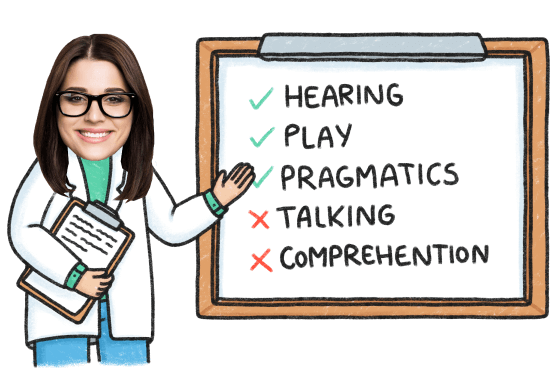5 Tips for Disciplining a Child with Autism
Feb 6, 2022 It’s not easy raising a child with autism. Autism Spectrum Disorder comes with a host of difficult problems throughout the course of a child’s life. One of the most challenging aspects of raising a child with autism is discipline. Disciplining any child is exhausting.
Disciplining a child on the autism spectrum is even more difficult than normal. What you thought you knew about disciplining a child with traditional methods is most likely not effective with an autistic child. Now with some extra patience, it may be time to reexamine your disciplinary strategy when dealing with a child on the autism spectrum.
Autism affects multiple aspects of a child’s life. However, certain behaviors create an increased challenge when it comes to discipline.
Some behavior difficulties include:
- Inability to understand consequences
- Unable to recognize unsafe situations
- Problems self-regulating emotions
- The need for a rigid routine
- Difficulties communicating needs (especially with nonverbal children)
- Sensory issues
While traditional methods won’t work on a child with autism, with a lot of patience and small changes in your discipline strategy your child’s misbehavior could take a step in a positive direction.

Disciplinary Tips for a Child with Autism
1. Educate
This first tip is the easiest tip for discipline, yet it’s the most important. The best reward you can give yourself and your child is the gift of understanding autism. There are many misconceptions about autism, especially when it comes to behavioral issues. But a child with autism still needs discipline for inappropriate behaviors as much as any child.
To discipline your child with autism, education is key! If you are unaware of how your child learns and understands, how can you help your child learn new positive behaviors? Children with autism have unique behavioral and psychological factors that influence their development.
Here are some simple ways to learn more about autism:
- An internet search about autism
- Articles related to autism on Speech Blubs Blog
- Your child’s care team members (therapists, doctors, and teachers)
- Another parent raising a child with autism
2. Safety First
If you encounter a situation that is dangerous to your child or another person, either emotionally or physically, think “safety first” and remove your child from the situation. A child with autism may have difficulties understanding when a situation becomes “out-of-control” or a situation is dangerous.
For instance, a child with autism may not understand the concept of sharing a toy with a sibling. So, the child begins to hit his/her sibling. Since this situation involves physical violence toward another child, it’s best to remove the child to a quiet area until the child gains control of his/her emotions.
Although it’s important to discipline your child for wrongdoing, it’s even more important to keep your child and others safe when a situation gets out of control.
Boost Your Child’s Speech Development!
Improve language & communication skills with fun learning!

3. Positive Discipline
Negative discipline involves punishing a child for misbehavior, while positive discipline is about talking and understanding misbehaviors. The best way to begin positive discipline is by praising your child for good behavior through rewards like behavior sticker charts. This may help your child visually understand that good behavior gets rewarded.
4. Teach Self-Calming Skills
Self-soothing strategies are a way for your child to calm down when he/she becomes overly stressed, anxious, or frustrated. Depending on how well your child can self-soothe, he/she may be able to redirect or decrease meltdowns before they occur.
For some children with autism, it will take time to learn to do self-soothing strategies when they are feeling stressed. But you can help guide your child with self-calming exercises by identifying his/her triggers and redirecting his/her attention to a calming skill.
Here are some examples of self-calming skills to teach your child:
- Deep breathing exercises
- Going for a walk or jumping on a trampoline
- Using a weighted blanket
- Wearing noise-canceling headphones
- Playing with sensory toys
- Going to a sensory corner or sensory room

5. Stay Consistent
Consistency and structure are essential for creating a discipline strategy for a child with autism.
When you are consistent with disciplinary tactics, your child will know what to expect when he/she misbehaves. Inconsistent discipline tactics may result in confusion and he/she may not understand the consequences behind their actions which may fuel more behavioral issues.
Conclusion
Discipline is a tough issue to tackle for any parent. But when you’re parenting a child with autism, you walk a fine line between ignoring bad behavior and resorting to negative discipline like spanking. However, traditional methods of discipline don’t work with children on the autism spectrum, and often backfire because the child will continue his/her inappropriate behaviors.
If you’re struggling with disciplining your child with autism, I encourage you to reach out to therapists and other parents with autistic children to try and find a solution that will work for your child. The best thing you can do for your child to show your love and understanding of autism is educating yourself and believing your child is able to change misbehavior and learn from his/her mistakes.
Have a question for our Speech Therapists?

